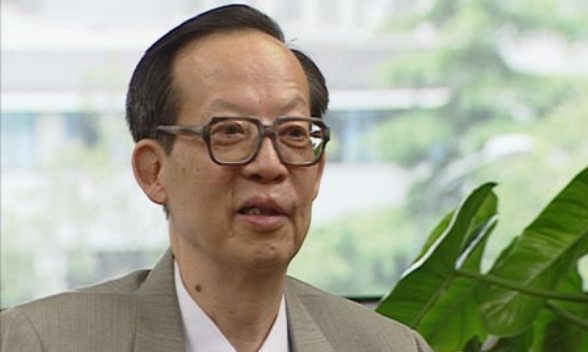Wang Xuan, born in February 1937, was a native of Wuxi, Jiangsu Province. He was a member of the Jiu San (Sept. 3) Society.
He studied in the Department of Mathematics and Mechanics of Peking University between 1954 and 1958. Upon graduation, he became a teacher there. But in 1959, he changed his post to the Department of Radio and Electronics and stayed there for nearly 20 years. Between 1978 and 1995, he was associate professor and professor in succession and director of the Institute of Computer Science and Technology at Peking University. Between 1995 and 1996, he acted as vice chairman of the Jiu San Society, director of the Institute of Computer Science and Technology at Peking University and chairman of the board of the Founder Holdings Ltd. In 1996, he was given a new post of vice chairman of Chinese Association for Science and Technology. In 1998, he was elected vice chairman of Education, Science, Culture and Health Committee of the 9th NPC. In March 2003, he was elected vice chairman of the 10th CPPCC National Committee.
He died of illness on February 13, 2006 in Beijing.
Wang was the founder of a laser photocomposition system for Chinese characters, which laid a foundation for computerization of the press and publication process, therefore it was known as the "second invention of the printing system for Chinese character after Bi Sheng's invention of movable clay type in the Northern Song Dynasty (960-1127)". In 1992, he led his team to successfully develop the world's first Chinese character color typesetting system. He had won in succession the gold medal of International Exhibition of Inventions of Geneva, gold award of China patent inventions, science award of the UNESCO and special prize of the State Great Technology Equipment Research and Development. In 1987 and 1995 respectively, he won the first prize of the State Science and Technology Award. His invention was listed in the Top Ten State Science and Technology Achievements twice in 1985 and 1995, the only program of China having won the State-level award four times. He himself was conferred many glorious titles including state expert with outstanding achievements, national model worker, Beijing model worker, advanced worker and model of the capital. In 1987, he won the Bi Sheng Printing Award - the highest honor for China's printing industry. He was also awarded 1995 prize for advancement in science and technology by the Ho Leung Ho Lee Foundation. Besides, he won the State Preeminent Science and Technology Award 2001, with 5 million Yuan.

